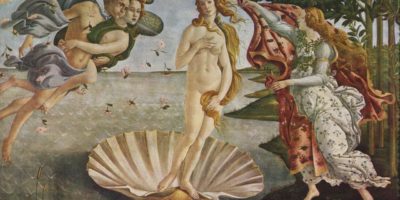
The cover of The Cult of the Nation in France: Inventing Nationalism, 1680-1800 By David A. Bell
10 Best Books on the History of France
France is located at the centre of Western Europe and has an interesting history that shaped it into what it is now. This country has had several conquests conflicts and the French Revolution that began in 1789 and ended in 1799.
During the formation of the nation in the middle ages, there was the abolition of the monarchy as well as its role in the Second World War.
The history of France is certainly rich and varied. All these events that happened have had historical significance to modern-era France.
Amid its commitment to art, an inclination for war, and strong national identity, France has merged a complex culture with many strings attached.
To have a better understanding of history, we have the best 10 books that explain its past.
1. Les Misérables (Victor Hugo, 1862)
Victor Hugo’s Les Misérables is perpetually celebrated as one of the best novels of the 19th century. The author, Hugo, wrote it to inspire social reform and confront inequality in European republics.
While this is a novel, it highlights French concerns for social welfare at the same time he establishes heredity for the staunch national pride France is credited with today.
In the book, you will read about the willingness of the revolutionaries to die for their ideology while embodying the French national motto, ‘Liberté, Egalité, Fraternité,’ (Liberty, Equality, Fraternity).
This book was turned into a musical film in 2012.
2. France in the World: A New Global History by Patrick Boucheron

The cover of France in the World: A New Global History by Patrick Boucheron
This is a collection of essays telling national and global histories while developing the readers’ understanding of France.
These short stimulating essays cover prehistoric frescoes, Coco Chanel to the terrorist attacks of 2015. The stories were written by experienced historians who paint France as a country that has been shaped by exchanges and mixtures.
The book presents the stories in sequential order from 34,000 BC to 2015. Each chapter covers a significant year from its perspective.
There is a new preface that targets the international audience.
3. A Concise History of France by Roger Price
This book gives a clear and up-to-date guide to French history. It starts from the early middle ages to the present (when the book was published).
Part of the book’s themes is the relationship between state and society, the impact of war and the use of political power.
The second edition of the book was considerably re-written to include the most recent research. There is also an additional chapter on contemporary France.
The new France is a society and political system that appears to be in a crisis as a result of globalization, international terrorism, racial tension and a loss of trust and confidence in the political leaders.
4. The Cult of the Nation in France: Inventing Nationalism, 1680-1800 By David A. Bell

The cover of The Cult of the Nation in France: Inventing Nationalism, 1680-1800 By David A. Bell
David Bell uses 18th century France as a case study to bring forth an important new argument about the origins of nationalism. His book also looks at events before the 18th century.
Back then, the idea of nation-building a central component of nationalism did not exist.
During that period, leading French intellectuals and political figures prioritized perfect national unity and looked for ways to bequeath all French people with the same language, laws, customs, and values.
This period gave rise to the first large-scale nationalist program.
5. Fabricating Women: The Seamstresses of Old Regime France, 1675-1791 by Clare Haru Crowston
Clare observes the social institution of the seamstresses’ guild in France from the time of Louis XIV to the Revolution. In the book, she raises concerns about the need to increase women’s economic, social, and legal opportunities.
This way, women would thrive in corporate organisations such as the guild. Previously, scholarships for women did not consider these.
In an interesting turn, Clare also reveals contradictory consequences of the guild’s success. The guild only places the importance on femininity in fashion and appearance.
Clare Crowston uses old evidence with visual images, technical literature, philosophical treatises, and fashion journals. She intentionally challenges existing ideas about women’s work and family in early modern Europe.
6. The Making of Haiti: Saint Domingue Revolution from Below by Carolyn E. Fick

The cover of The Making of Haiti: Saint Domingue Revolution from Below by Carolyn E. Fick
Back in the 18th century, the French colony of Saint Domingue was the richest and most flourishing of the Caribbean slave colonies. The economy of this colony relied on the forced labour of more than half a million black slaves from the continent of Africa.
In the book, Carolyn discusses that the suppressed and uneducated slaves were the principal architects of their freedom and the successful movement toward national independence.
She further points out “marronage,” which is the act of being a fugitive slave. This was a basic unit of slave resistance from which the revolution grew.
It also presents how the autonomy of popular slave participation was as important to the success of the rebellion through the leadership of men like Toussaint Louverture, Henri Christophe, and Dessalines.
7. The Enlightenment by Dorinda Outram
This book covers the period that was considered a wake-up call with debates on the nature of man, truth and the place of God. She incorporates this with ideas, people and gold.
The big question in the book is whether the Enlightenment period meant the same for different genders, social classes and Europeans vs non-Europeans.
In its 4th edition, the book addresses these and other questions about the Enlightenment and its place at the foundation of modernity.
Dorinda studied the period as a global phenomenon that touched on how historical interpretations of the Enlightenment continue to transform in response to contemporary socio-economic trends.
8. The Family Romance of the French Revolution by Lynn Hunt

The cover of The Family Romance of the French Revolution by Lynn Hunt
This masterpiece by Lynn Hunt is a collection of her contributions to the new cultural history. The book is made up of a bold and multidisciplinary investigation of the imaginative foundations of modern politics.
Lynn Hunt uses the term `Family Romance’ (a term that was coined by Freud Sigmund to describe the fantasy of being freed from one’s family and belonging to one of higher social standing).
She uses the term to describe the images of the familial order that structured the collective political unconscious.
Through the book, Hunt demonstrates that the politics of the French Revolution were experienced through the network of family romance.
9. The Other Enlightenment: How French Women Became Modern by Carla Hesse
Carla believes that a new cultural world where women were free from corporate privilege, aristocratic salons, and patriarchal censorship, was achieved through The French Revolution.
However, one thing that the Revolution failed to achieve was to grant women legal equality.
During this period, Women took place and were active participants in great political, ethical, and aesthetic debates.
Carla Hesse tells this story by writing an extensive history of how French women have used literature to create themselves as modern individuals.
10. The Constitutional Monarchy in France, 1814-48 by Pamela M. Pilbeam

The cover of The Constitutional Monarchy in France, 1814-48 by Pamela M. Pilbeam.
Historians in France adopted the idea that the restoration of the Monarchy after the defeat of Napoleon was doomed.
The book reveals that there was substantial stability even though the French experimented with two Monarchies and a Republic (1814 – 48).
Further, she looks at the institutional framework constructed during the Revolutionary years (1789-1814) that remained intact and the ruling elites retained basic control.
This book is one of the first of its type to analyse diaries, memoirs, novels, and cartoons that explored the events through eyewitnesses. It is one of the best books to read for those interested in French history.
Planning a trip to Paris ? Get ready !
These are Amazon’s best-selling travel products that you may need for coming to Paris.
Bookstore
- The best travel book : Rick Steves – Paris 2023 – Learn more here
- Fodor’s Paris 2024 – Learn more here
Travel Gear
- Venture Pal Lightweight Backpack – Learn more here
- Samsonite Winfield 2 28″ Luggage – Learn more here
- Swig Savvy’s Stainless Steel Insulated Water Bottle – Learn more here
Check Amazon’s best-seller list for the most popular travel accessories. We sometimes read this list just to find out what new travel products people are buying.









